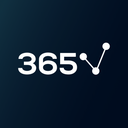Data science is an all-encompassing discipline that is constantly on the move – which makes it more time-consuming to master. Typically, to gain certification and land an entry-level job, your first thought might be to pursue a university degree. But not all professional data scientists have the relevant academic credentials, nor do all recruiters look for them anyway, as long as the candidates have some proven experience. The developing nature of the field means that you don’t necessarily have to follow the beaten path, but rather pave your own.
In this article, I will outline some alternative pathways toward landing a job in data science without a university degree, how to stand out with your resume, and what skills and certification you need to prove your worth at the interview.
Before we dive in, feel free to check out our video on how to approach the data science job market if you have no experience or scroll down to keep reading.
Table of Contents
- Can You Find a Data Science Job if You Don’t Have a Data Science Degree?
- Can You Transition into Data Science with a Non-technical Degree?
- How to Learn Data Science Without a Data Science Degree?
- How to Get Data Science Work Experience Without a Data Science Degree?
- Finding a Data Science Job Without a Data Science Degree: Next Steps
Can You Find a Data Science Job if You Don’t Have a Data Science Degree?
According to Glassdoor, data scientist is the third best job to have in the US in 2022. And with more and more businesses leveraging their success based on data-fueled results, it shouldn’t be a surprise that the demand is high.
But do you need a degree in data science to get a job? The simple answer is no, you don’t need formal education in this field to start your career. However, you’d still have to have completed a level of higher education in order to successfully land a data science position. Our 2021 research into 1,001 data scientists shows that 55% of the individuals in our sample hold a Master’s, while 19.8% - a Bachelor’s.
Can You Transition into Data Science with a Non-technical Degree?
Even if you didn’t major in computer science, software development, or engineering, there are still plenty of opportunities for you to break into data science with a non-technical degree.
Perhaps you completed a degree in a non-technical field, such as statistics, finance, economics, medicine, or physics before discovering a new career path in data science. Now you’re wondering – is it possible to make the switch? The answer is a resounding yes - just ask one of our successful students, Serhan Tanriverdi, who became a data analyst without a STEM degree!
Many people go into one industry, then realize that their passion lies elsewhere. But with a career shift comes lots of doubt. Questions like “Will I make it if I don’t have the relevant education or experience?” creep in. Allow me to ease your worries – you can successfully pivot into data science even if you come from a different academic background.
If you’d like to learn more on how to achieve this, check out our guide on how to transition your career into data science.
How to Learn Data Science Without a Data Science Degree?
University degrees are guided courses where the teaching staff predetermines your educational journey. While learning on your own, the lack of curriculum can be a drawback. However, if you adopt a proactive attitude, you’re bound to create a roadmap that works for you. But where do you start? As with every other learning curve, you should build on what you already know.
Study the Data Science Fundamentals
Just as with any traditional program, you’ll need to start with the basics and build your way up. Data science lays its foundation on familiar concepts that we’ve all come across more than once in our lives, even if we aren’t specialized in them:
They are the building blocks of any data science workflow. If you know how to handle calculus equations, normal distributions, or linear regressions, then you’re on the right track.
After that, you can move on to more complex topics such as machine learning and deep learning. Read about convolutional neural networks, computer vision, and AI algorithms. You don’t need to be an expert in these areas just yet (unless your ultimate goal is to become a machine learning engineer), however, you still need to understand their meaning and impact on the future of business.
Practice Programming for Data Science
Contrary to popular belief, programming isn’t just for software developers. Even data professionals use code to build effective models and extract valuable insights. For this reason, it’s highly recommended that you should become fluent in at least one programming language in order to pursue a career in data science. This might sound intimidating now, but trust me – you don’t need to be a computer scientist at heart to learn how to code.
But with an overwhelming amount of programming languages nowadays, which one should you go with? According to Anaconda’s 2021 State of Data Science report, Python is the most frequently used among data science professionals, educators, and students. As an open-source coding language, it is significantly easier to master, due to its beginner-friendly syntax, and offers a wide range of functionalities for data analysis, further supplemented by a large array of libraries.
Another popular choice that we absolutely recommend familiarizing yourself with is SQL. Short for Structured Query Language, it is perfect for data extraction and relational database management. Read our dedicated article on why you should learn SQL to get a better idea of the topic.
And if you’re looking for more structure in your learning roadmap, try the 365 Data Scientist Career Track. Comprised of 10 courses, it introduces you to all the fundamental theory and practice needed to build your data science skills from the ground up. At the very end waits a final exam whose successful completion earns you an industry-recognized certificate to add to your credentials.
How to Get Data Science Work Experience Without a Data Science Degree?
It’s no secret that employers look for data scientists with relevant work experience. In order to bring value to the company, you need to prove you understand its needs and can provide for them, using your skills. To do that, you also need some business know-how.
But what do you do when you have no work experience and getting a data science degree is not on the table? Graduates might have the upper hand due to their exposure in the field, yet there are ways for you to boost your data science profile outside of the academic bounds.
Build Your Portfolio with Data Science Projects
You’ve found the perfect learning platform that suits your needs and you’re already well on your way to data science fluency. How will you prove that you know your stuff to potential employers? By working on data science projects as you accumulate skills, of course. They won’t be perfect at first, but this shouldn’t discourage you. Practice as much as you can and build a solid portfolio.
One beginner tip we can give you is to start with ready-made projects (we recommend Python for beginners). Follow the code and see if you can recreate the results yourself. Not only do you learn by doing, but you might even discover something new that the data scientist or data analyst before you hadn’t considered.
The type of projects you choose to work on will play an important role too. If you’re passionate about a particular industry or job opportunity, you can choose datasets or even collect your own data for that specific field. This kind of effort shows that you’re willing to go above and beyond, and this is the type of data scientist everyone wants to have on their team.
Participate in Data Science Competitions
Data science competitions and hackathons are a great way to put your newfound skills into practice. Websites like Kaggle and DrivenData often host events where you help big organizations with their data conundrums. What’s in it for you? Well, there’s usually a prize at the end. More importantly, however, it’s a chance to get your name out there. Quite a few data scientists landed their job after being noticed for their outstanding performance in datathons.
Volunteer for Data Science Tasks
Another great way to boost your portfolio is to offer your data science services to others. Many companies have just or are yet to adopt a data approach to their business – identify those who might benefit from your expertise. You can also reach out to hiring managers that work in the companies you’d like to work at as well and offer to do some free analysis for them. Or even better, perform some analysis on their company, industry, product, or competitors and send it to them. Chances are that they might find a role for you or refer you to other companies, thus expanding your network.
Additionally, there are programs you can join that strive to tackle social challenges with data. For example, the US-based DataKind is an organization that offers volunteer opportunities to develop your skills in data science, programming, project management, and more.
Create A Data Science Resume
You’ve done a few projects and joined some data-oriented activities. What’s next? It’s time to create a compelling resume that clearly shows the technical skills you have, how you gained them, as well as everything you’ve worked on. Go the extra mile and dedicate enough time picking the right template, editing it with your personal information. Make sure it looks clean and professional.
If you’re struggling, the 365 Resume Builder is here to save the day. It offers a clean and concise structure that keeps you focused on the important details, as well as an option to link your 365 certificates of achievement directly onto your easy-to-share file.
Building your data science profile is important for exposure. Spread the word on social media and LinkedIn. Share your projects on websites like GitHub and Discord. Doing this allows you to keep your information up to date and lets recruiters know exactly what you can offer them.
Look for Data Science Internships and Entry-level Roles
As mentioned previously, companies are after data scientists with some level of experience. In order to stand out in the pool of candidates, you need to have at least 1 or 2 relevant sections on your resumes. What can you, as a data science beginner, do in this case? Look at company websites or social media profiles to check whether they offer any data science internships. Consider also approaching firms you admire with an inquiry.
There are drawbacks to this approach such as working as an unpaid intern or not even hearing back from the companies you’ve applied for. However, this kind of work experience is still valuable to have on your resume – it shows employers that you’re truly invested in building a career.
Network Within the Data Science Community
As the old saying goes, it’s all about who you know. Data science is a growing field, yet remains a tight-knit community. Not having a degree can set you back a step as graduates will be introduced to a network of people in the field who will potentially become mentors or meaningful connections.
While you’re still learning, join online forums, like GitHub’s or Python’s, and mingle amongst fellow data enthusiasts. Chances are you’ll meet many like-minded individuals that are in the same boat as you. Just like in a university data science cohort, you’ll be able to support each other along the way. And you can even engage with renowned instructors and fellow students in 365 Data Science's own Q&A hub.
On a more professional level, you can approach data scientists in the industries or companies you’d like to work in. Be respectful and polite when you initiate a conversation – nobody really likes to be pestered. Ask them about their role and experience. Tell them about yourself and your own projects. In the end, if you make a lasting impression, they could be a real asset to you during the Great Job Search.
Take Your Interview Prep to the Next Level!
Try our AI-powered interview simulator! Customize your interview experience by selecting:
- Your target role
- Dream company
- Interview type (HR or Technical)
- Your background and experience level
Get instant feedback and a detailed score report after each practice session.
Q&A
Finding a Data Science Job Without a Data Science Degree: Next Steps
Starting a career in any field is a challenging feat that requires perseverance. To break into data science, you need to take your time sorting through the abundance of resources at your disposal – among books, online courses, and data bootcamps, the world is your oyster.
Now that you have a clear roadmap in mind, it’s time to put the plan into action.
Start learning today with the 365 Data Science Program. It offers self-paced courses led by renowned industry experts. Starting from the very basics all the way to advanced specialization, you will learn by doing with a myriad of practical exercises and real-world business cases. If you want to see how the training works, start with a selection of free lessons by signing up below.






![Data Scientist Job Outlook 2025 [Research on 1,000 Job Postings]](https://365datascience.com/resources/blog/thumb@360_9i9eyv5957g-data-scientist-job-market-research-2025.webp)